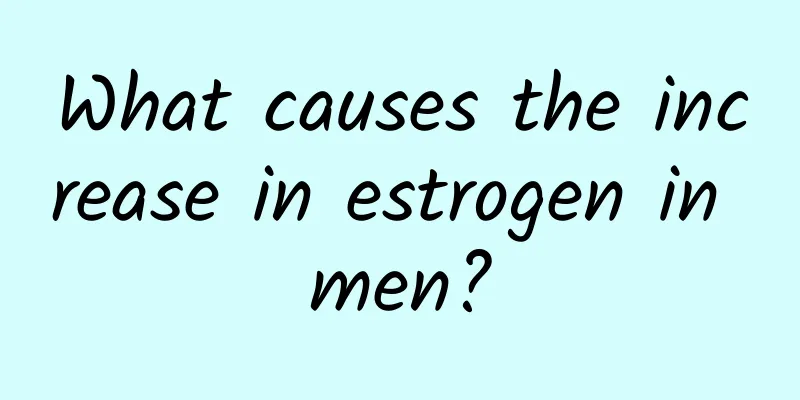What to do if sperm is ejaculated inside

|
If many couples are not ready to have children, they should take precautions during sex. But sometimes, we will take precautions after sex, because before sex, everyone thinks that sperm can be prevented from entering the uterus. But many times, sperm will be ejaculated inside. So, if you don't want children, what should you do if sperm is ejaculated inside? 1. Female factors (1) Fallopian tube factors The fallopian tube has the function of transporting sperm, collecting eggs and sending fertilized eggs into the uterine cavity. There are many causes of tubal infertility, mainly including pelvic infectious diseases, endometriosis and congenital tubal abnormalities. Among them, pelvic adhesions caused by pelvic infectious diseases are the main factors leading to tubal infertility. (2) Ovarian factors Including ovulation factors and endocrine factors. Anovulation is the most serious cause of infertility. Factors that cause ovarian dysfunction and persistent anovulation include ovarian lesions, hypothalamus-pituitary-ovarian axis dysfunction, and systemic factors. (3) Uterine factors Congenital malformations of the uterus and submucosal uterine myomas can lead to infertility or miscarriage after pregnancy; endometrial secretory dysfunction, endometritis, etc. affect the passage of sperm and can also cause infertility. (4) Cervical factors Neck stenosis or congenital cervical malformation can affect the entry of sperm into the uterine cavity. Cervicitis can change the amount and properties of cervical mucus, affecting sperm motility and the number of sperm entering the uterine cavity. In chronic cervicitis, cervical mucus becomes thicker and contains a large number of white blood cells, which is not conducive to sperm motility and penetration, and can affect conception. (5) Vaginal factors Congenital absence of the vagina and vaginal damage can affect sexual intercourse and prevent sperm from entering. In severe vaginitis, the pH value of the vagina changes, reducing the vitality of sperm, shortening its survival time and affecting conception. 2. Male infertility factors (1) Abnormal semen Subfertility is closely related to abnormal sperm motility and sperm density. Many factors can affect the number, structure and function of sperm, such as acute mumps complicated with orchitis, genital infection, congenital developmental abnormalities, excessive exposure to chemicals, etc. (2) Blockage of the vas deferens and obstruction of sperm transport The main causes are infection and trauma of the reproductive tract, such as orchitis and epididymis, infection of the vas deferens and infection of the prostate, etc. Pelvic, inguinal and perineal surgeries can all cause stenosis of the fallopian tubes and obstruction of sperm transport. (3) Immune factors The production of antibodies against one's own sperm in the male body can cause male infertility. The ejaculated sperm will agglutinate itself and cannot pass through the female's cervical mucus, resulting in infertility. (4) Endocrine factors Male endocrine system is regulated by the hypothalamus-pituitary-testis axis. Disorders in the regulation of this axis may affect sperm production and cause infertility. (5) Erection abnormalities Erection abnormality prevents sperm from entering the female vagina. Male erection is affected by physiological and psychological factors. Common physiological factors include congenital genital malformations, genital inflammation, etc.; psychological factors often include mental and emotional abnormalities and family relationship disharmony. 3. Male and female factors (1) Lack of basic knowledge about sex life Both men and women lack basic knowledge about sex life. Couples do not understand the anatomical and physiological structure of the reproductive system, which leads to incorrect sex life. (2) Psychological factors Work pressure, financial burden, family illness, depression, fatigue, etc. can all lead to psychological barriers and infertility. In addition, the couple's excessive desire for pregnancy and tense sex life can also cause psychological pressure and lead to infertility. (3) Environmental factors Humans release a large amount of toxic chemicals into the environment every year. These chemicals can interfere with the synthesis, secretion, transport, binding, digestion and other processes of natural hormones in the body, thereby changing the endocrine system. |
>>: How to treat testicular enlargement
Recommend
Epididymitis surgery
In addition to the penis, prostate and testicles,...
Boys have fat on their chests and can't lose it
Although many people have very fat muscles, they ...
Primary severe premature ejaculation
I believe everyone has heard of premature ejacula...
The glans of the penis grows a layer of bean curd every day
The male glans is a particularly important organ ...
How to make cold wild amaranth, wild amaranth tastes better when cooked this way
Wild amaranth is a common type of wild vegetable ...
Normal sperm percentage
For male friends, as well as the self-esteem of m...
The right testicle is also enlarged and has a lump. What is the cause?
The testicles are an important part of sperm prod...
Banana and honey weight loss method, does it really make you thinner the more you eat?
Losing weight is not just for women, it is also s...
Can a general physical examination detect AIDS?
AIDS is a contagious disease that cannot be detec...
What to eat for kidney deficiency
Do you often sweat profusely? Do you always feel ...
What to eat for rheumatoid arthritis? These four foods are worth choosing
After suffering from rheumatoid arthritis, most p...
What vinegar should I use to wash my face to remove spots? A practical secret recipe to remove spots
Washing your face with vinegar is a common trick ...
What causes testicular swelling?
Many boys will experience testicular swelling and...
Is it a problem if the sperm contains blood?
Men's sperm is very important. Only when it c...
How to use toothpaste to remove forehead wrinkles
Forehead wrinkles are very annoying because they ...









